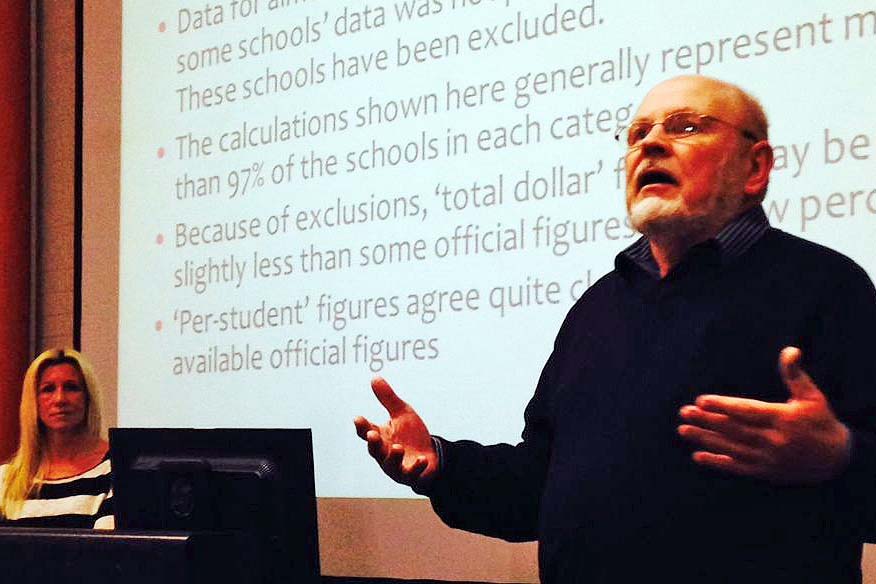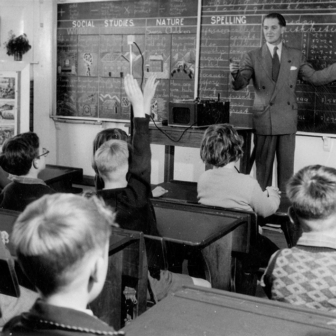Every profession has them: those people with an extraordinary range of interests and talents who change the lives of others and sometimes the profession itself. Bernie Shepherd, who died from cancer last week, was one of these. He was a science teacher with great interest and ability in English and the arts, a school principal who established a different type of school, a consultant who carried a new method of assessing students across New South Wales, and a retiree who pioneered analysis of our school system by tapping into the data behind the My School website.
To readers of Inside Story, Bernie Shepherd’s name will be best known for a series of articles we wrote together analysing My School data. Over the past two years we have been fortunate to join with the Centre for Policy Development in the publication of Uneven Playing Field in 2016 and Losing the Game, the latter released last week, just two days before Bernie died. He kept contributing to Losing the Game until his final few weeks, always making sure that it met high standards. His command of English and his endless pursuit of accuracy guaranteed precision in reporting what we found. On only one occasion did we have to amend a published article – and it certainly wasn’t Bernie’s mistake.
Bernie was an undemonstrative person, which meant that when something really raised his eyebrows you knew it was significant. After the first couple of years of My School, I suggested that the data might show what changes were occurring, over time, in schools. He insisted we wait two more years; only politicians and the tabloids get excited by changes in just one or two years. Then, in 2014, his analysis showed that, in the years following Australia’s non-implementation of the Gonski recommendations, equity and achievement in our schools was worsening. The rest is recent history.
Bernie’s career initially followed a common trajectory: classroom teacher at Liverpool Boys’ High School, head teacher at Drummoyne Boys’ High, and deputy principal at Seven Hills High. He then became the foundation principal of the newly created St Marys Senior High School – the first state senior high school in New South Wales.
In between those appointments he was a curriculum consultant and also led syllabus development in science. He became a foundation member of the NSW Board of Studies and for years was an indispensable part of curriculum, assessment, scaling and standard setting in that state. He served on the executive of the NSW Secondary Principals’ Council. He was an elder statesman among his colleagues long before he became an elder.
He would do all this while occasionally revealing, again in that understated way, his wide range of other talents and interests, whether it was photography or the magic of the theatre. Bernie was truly a Renaissance man in the digital age. Technology and computers were among his tools, and he could make a spreadsheet sing.
Bernie Shepherd made a difference at all levels, from individual students up to the movers and shakers… or maybe as he saw the priority, from individual students down to the movers and shakers. He didn’t seek the limelight but it sought him out. He was made a Member of the Order of Australia and a Fellow of the Australian College of Educators and of the Centre for Policy Development. He seemed to gather life memberships, including those from the NSW Secondary Principals’ Council, the NSW Parents and Citizens Federation and the Australian Education Union. Given the politics of education, this was a remarkable recognition from such diverse organisations.
We’ve all seen remarkable people in our lives. Bernie Shepherd’s name is up there in lights. I’m proud to have been able to share parts of his life with so many others. A gathering to celebrate Bernie’s life will be held in the second half of July. Details, when available, will be posted on EdMediaWatch. •




